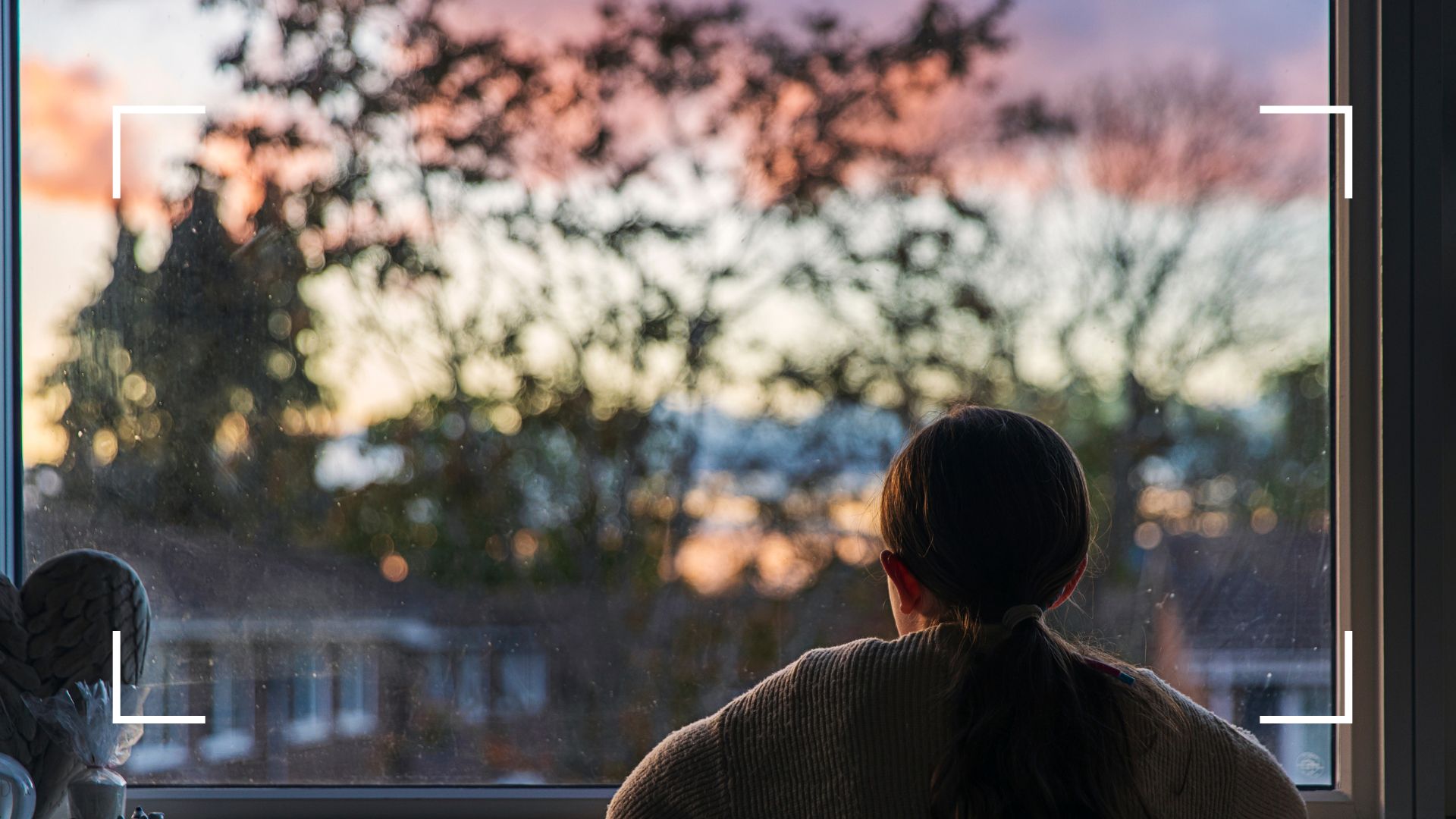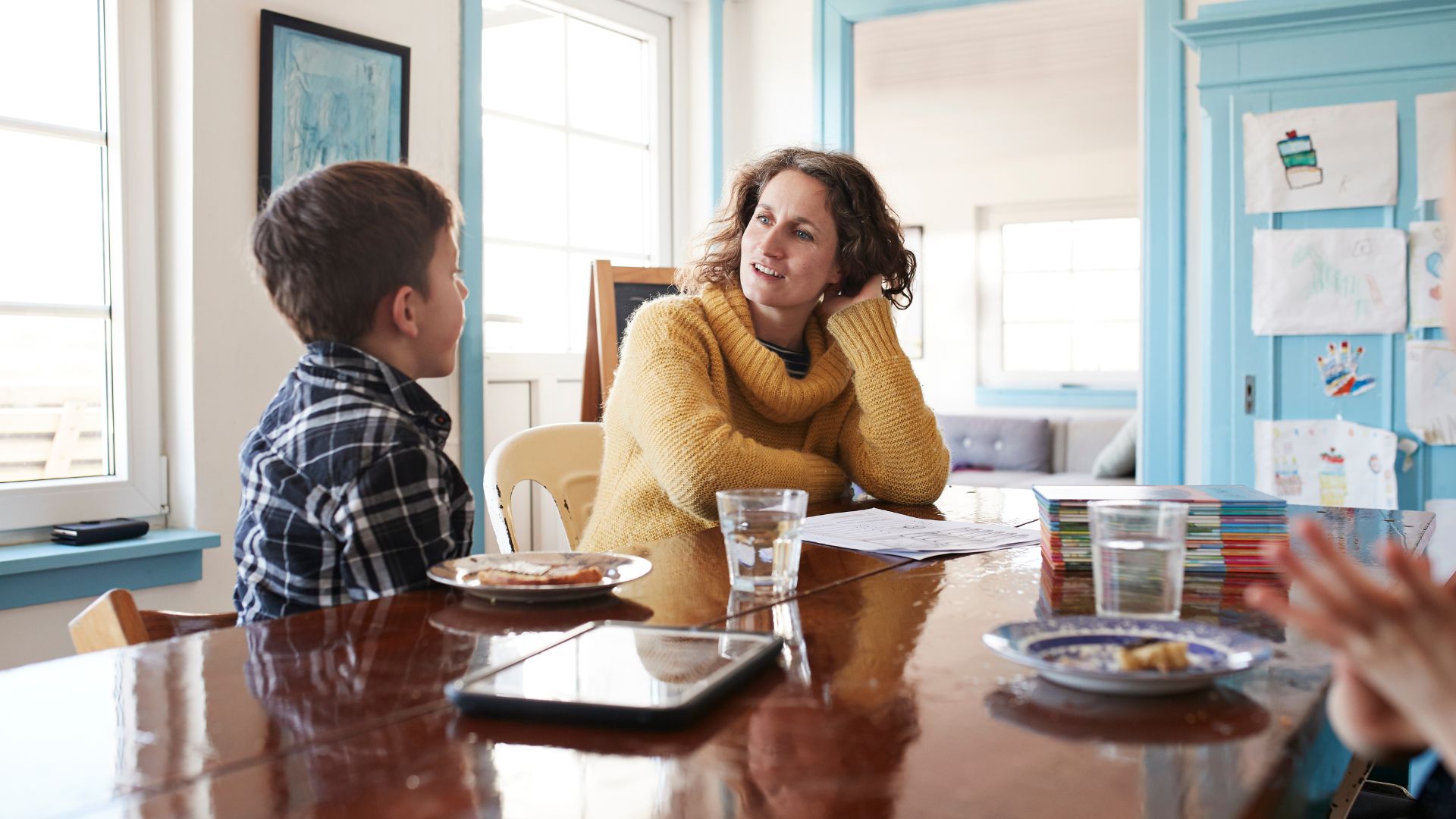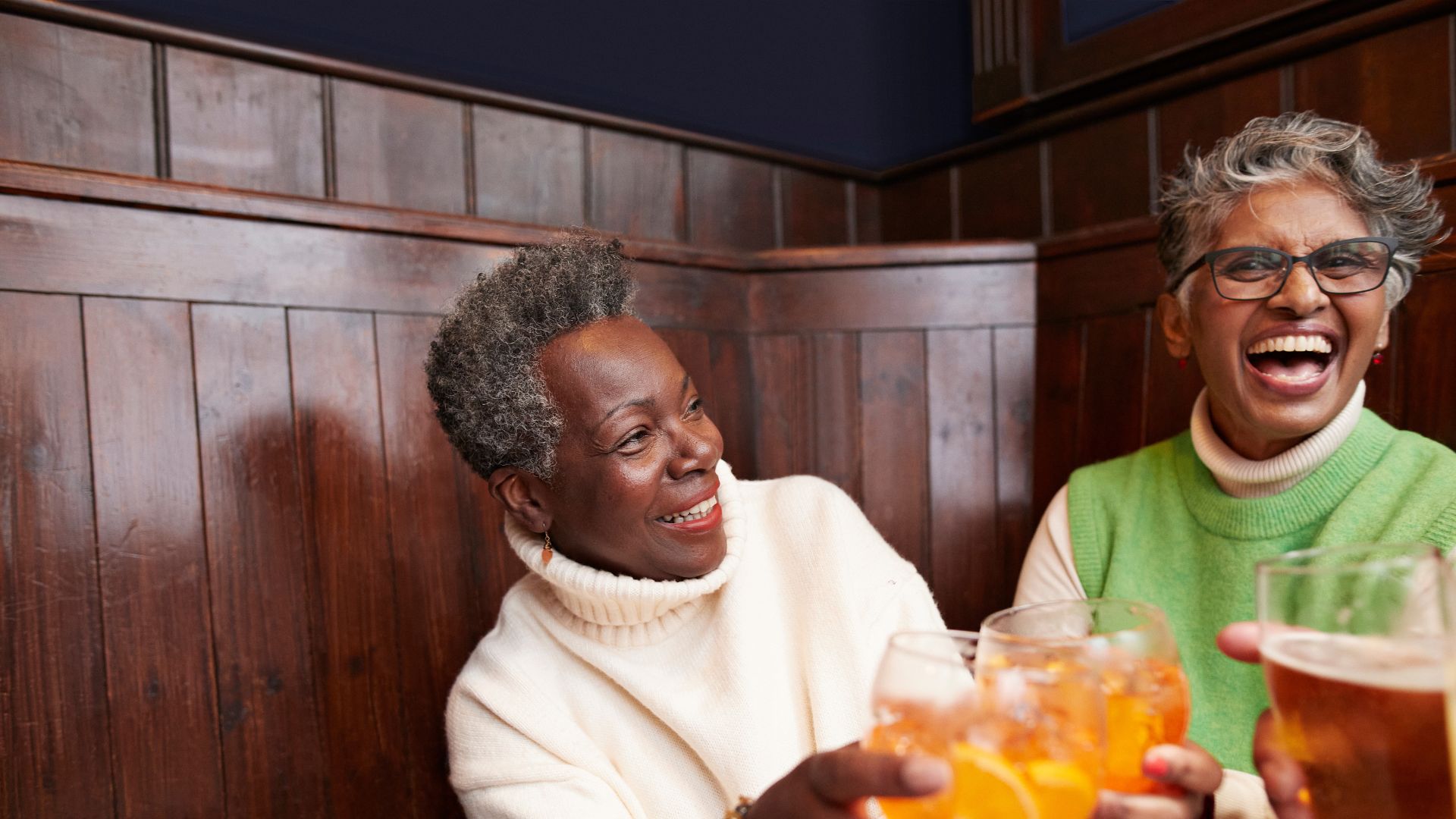The price of loneliness: how being lonely could be having a emotional, physical and financial impact
Loneliness takes a real toll on our mental wellbeing, this is how


As a society, we're becoming more aware of how loneliness and other social isolation issues can affect our mental and physical health. Multiple lockdowns and time spent away from loved ones over the pandemic meant that, possibly for the first time, we've had to confront the condition head-on.
Loneliness can affect everyone and anyone, regardless of preconceived ideas around age and gender. It can even affect those who are surrounded by people, as loneliness is more about how you feel than your environment. Equally, someone who spends most of their day on their own may never feel lonely.
Either way, we're told we just need to learn how to deal with loneliness as a part of life, but it shouldn't have to be that way. As a condition that affects almost everyone at some point in their life, with life-threatening repercussions, being lonely shouldn't be something that we have to just accept. Here, the health experts reveal the true impact of loneliness on our mental and physical health, and what we can do about it.
What is loneliness?
Loneliness, according to mindset coach Rebecca Lockwood, is when you feel as though you are lacking affection from others. "It's when you crave human connection and social interaction, but you're not having any of it or enough of it in your life."
Recent research has even gone so far as to say that it's not just an unfortunate set of circumstances or a lack of secure relationships though. A study by the University of Chicago found that loneliness can be as much of a debilitating condition as anxiety or depression. It's linked to mental health conditions such as cognitive decline and Alzheimer's disease, as well as physical problems like high blood pressure, heart disease, obesity, a weakened immune system, and even death.
The research primarily focuses on older people and in the years before the pandemic, loneliness earned a reputation as being something that only affected older people. As a result, up until now, the focus has been on being lonely at Christmas and other seasonal holidays where socialization is the primary feature.
But as the Campaign to End Loneliness found, millions of people in midlife and younger experience loneliness. According to a study they conducted in affiliation with The Co-op and the British Red Cross, 9 million people in the UK across all age groups reported either always being or often being lonely.
Sign up to our free daily email for the latest royal and entertainment news, interesting opinion, expert advice on styling and beauty trends, and no-nonsense guides to the health and wellness questions you want answered.
Why are people in their midlife struggling with loneliness?
When it comes to loneliness, one of the biggest surveys on the subject by Prevention.com found, it's all about the quality of relationships that matter - rather than the quantity - and those between 30 and 49 years old reported the deepest dissatisfaction with this.
While certainly not the case for everyone, the New Economics Foundation found the reason why some people in midlife are experiencing loneliness on an epidemic level is that we surround ourselves mostly with people we know on a functional basis - such as work colleagues and children's friend's parents - rather than those we connect to emotionally.
Dr Natasha Bijani, consultant psychiatrist at Priory Hospital Roehampton, agrees. "Aging leads to many changes in our lives," she says. "One's children tend to leave the family home as they mature and we approach our middle age. It might be difficult for some to adjust to an 'empty nest', and separation and divorce are more frequently becoming part of this adjustment as the departure of grown children make the couple realize they have lost the connection."
She adds, "We also tend to become more aware of our own mortality and start to take stock of our lives, especially as our own parents become frail and elderly too. Disappointments and unfilled ambitions are likely to feel more acute, all of which can lead to feelings of loneliness."
Other factors, including where you live can also increase or decrease the chance of being lonely. Bethan Harris, of the Loneliness Lab, says that loneliness is a huge problem in society and according to her research, it's particularly prevalent in cities.
"Much of the problem is centered in busy but isolated cities," she says, "This is where technology, social media, and the like are most used and so can act as a floatation device for socialization. While there are some useful apps out there, like the best mindfulness apps and best dating sites, for instance, they're not a substitute for socializing. For a long time, cities have been designed around the individual, rather than the community and this is only adding to that."
She continues, "So much focus is on the amount of private and personal space we have, rather than spaces for being together and authentic social connection. Our always-on lifestyles also make it harder for people to invest in social activities and hobbies, where you can meet new people."
Post-pandemic, she adds, we now know that our neighbors, long-standing friends (including work colleagues), and the community around us is essential for maintaining our mental health.

Incredibly, heartbreakingly lonely
Ruth Douglas, 47
For Ruth Douglas, 47, these feelings of loneliness came after her divorce was finalized ten years ago. "I married my husband in 2005 and for three years we ran a scuba diving center in Gran Canaria," she told woman&home. "Although fun, it became incredibly stressful and on 29th August 2008, we closed the doors on the business. Our daughter Isa was born the next day and so there we were; new parents with no work. After a couple of months, we moved to France to live with my husband's family and, perhaps, predictably our relationship didn't withstand the stress of losing business, moving countries, and new parenthood."
Ruth, who runs her own business now, explained that single parenthood was ultimately the thing that left her feeling lonely and isolated. She said, "I used to get incredibly, heartbreakingly lonely at the beginning of being a single parent. Snotty, weepingly lonely. In the beginning, I think my daughter's age played a part in this. Because she was only one when I became a lone parent, your life is very much run on a baby's timeframe, so once they're in bed, that's it your day is done."
But now as her daughter is grown up, things have changed. "As my daughter has grown up, she's become a better companion. Let's face it, toddlers aren't great conversationalists," she laughs.
As time has gone on, Ruth says that the loneliness has grown duller - but it still comes around in big moments as she's single. "These days I mostly feel lonely when something really brilliant is happening and I think, 'Isn't it a shame there's no-one else to share this with', or when I'm feeling overwhelmed with being responsible for all the things, and making all the decisions."
"It is also frustrating that because I have no spontaneous time off, such as weekends when Isa is with her dad as he lives in Latvia. Going on dates feels like a massive logistics challenge, so I tend not to date that much anymore. But I'm hoping that simply by going out and doing more things like networking groups or activity days with my daughter, one day I'll bump into someone who will be the person to share our life with."
What impact does loneliness have on our mental health?
Given that loneliness is so pervasive in society, it's unsurprising the effects of loneliness on our mental health can be huge, and long-lasting. Dr Bijani says, "A lack of adequate social interaction and healthy, fulfilling relationships can contribute to a whole number of psychiatric conditions, including depression, anxiety, general cognitive decline, and Alzheimer’s dementia."
It's also associated with lower self-esteem and limited use of active coping mechanisms, research from University College London found, meaning those who are lonely may have to learn how to be more confident again when it comes to social situations and events.
The tricky issue with loneliness though, Dr Bijani adds, is that it's a vicious circle. "Having mental health problems can make you feel lonely, but feeling lonely can also damage your mental health," she says. "It can make people feel depressed, uncared for, abandoned. And the more you feel like that, the more difficult it is to reach out."
I actually started feeling sluggish and unmotivated
Holly Thatcher, 35
This is something that 35-year-old single parent, Holly Thatcher, knows all too well. Well before working from home became essential in the pandemic, she started at a company where remote working was the policy. "Loneliness was a huge problem for me," she told w&h. "Of course, working from home was handy for managing family life but a few weeks or months into the role, I found myself becoming anxious, depressed, and isolated."
For Holly, intrusive thoughts about whether she was actually awful at her job began to spring up. She explained, "Without a bit of light chatter to break up the working day, I actually started feeling sluggish and unmotivated. I tried confidence affirmations and tried to get into a routine, but nothing worked."
For the mum-of-two, those feelings culminated in Holly convincing herself she was going to be sacked. "Looking back, this was completely illogical, but a product of being on my own for too long and over-thinking everything." And it couldn't have been further from the truth. "A week after returning from a break, I got a shout-out on our weekly team conference call for the excellent quality of my work. This really shocked me and made me realize how much loneliness was impacting my self-esteem."

How does loneliness affect our physical health?
It's easy to assume that loneliness might only affect your mental health, but loneliness can have a devastating impact on us physically too. The Campaign to End Loneliness cites a 2010 Holt-Lunstad study that suggests social isolation is just as bad for your health as smoking 15 cigarettes per day. As a result, loneliness alone is likely to increase your risk of death by 29%, making it a serious issue when it comes to healthcare.
"Social isolation and loneliness have been linked to a higher risk of many physical and mental illnesses," says Dr Bijani. "As well as a general shortening of predicted lifespan, heart disease, high blood pressure, obesity, and a weak immune system with an increased risk of infection are all linked to loneliness."
But that's not all, loneliness is likely to spur on unhealthy coping mechanisms. "Rather than engaging in healthy, mindful drinking practices, those who are lonely may be more inclined to overeat and have substance misuse issues around drinking and alcohol," Dr Bijani adds.
What is the economic cost of loneliness?
Loneliness truly affects every part of our lives, including our bank accounts. The New Economics Foundation, a group set up by charities and local authorities, found that loneliness comes with huge costs to both individuals and their employers.
For example, the combined impact of loneliness on health comes in at over £240 million. The group looked at the links between loneliness and depression, coronary heart disease, and other physical health conditions linked to the issue, and estimated the cost to employers for sick leave (£20 million). When combined with the impact of friends or relatives having to take time off work to take care of someone experiencing these health issues as a result of loneliness, the figure jumps up by £200 million per year.
With this in mind, it should come as no surprise that loneliness dramatically reduces the output that an employee can manage on any given day - at a yearly cost of £665 million to employers. And with the host of mental and physical health conditions that come with loneliness, it's no surprise that people leave their jobs, opening up a £1.62 billion deficit.
Not only are the financials shocking in this case but it truly shows that loneliness can have a devastating impact on every part of our lives, from our physical health to employment, which in turn affects our ability to maintain a steady income. No amount of learning how to deal with stress could counteract the struggle of being unable to pay rent, bills, and other utilities, all that's needed to keep a roof over your head.
At the end of the report, the New Economics Foundation urges for something to be done about the situation to minimize the economic impact. They said, "Our findings of substantial costs from loneliness to UK employers strongly suggest that it is in their interests to take both reactive and preventative approaches to minimize the loneliness of their employees."

Can we combat loneliness?
Yes, it's possible to solve the loneliness problem - but it starts by changing circumstances. If you're struggling with loneliness, "be aware of the thoughts you have and make time to spend with loved ones," Lockwood says. "When you see friends, it's always a good idea to have another date in the diary in a couple of weeks for a catch-up, if possible."
She adds, "Go to local groups and connect with new people if you have a lack of social interaction. Do more of what you enjoy. This will keep you occupied on the things you love, giving you less time to worry about feeling or being alone."
The loneliness Holly has experienced has been such that she decided to change her job, to create a more social environment. She explains, "The job role I am going to will be very similar to what I’m doing now, but I’ll be mainly office-based, a short commute from my home. I’ve taken the time to find a company that I know has a flexible working policy, so the option to work from home some days is still there if I need it."
She says, "I got a really positive vibe about the working atmosphere, so I’m hopeful it will be the right move for me."
Combating loneliness is difficult though if you are also struggling with a serious mental health problem, like anxiety or depression. If you are struggling, or you want to know how to support someone with depression, anxiety, or another mental health condition, reach out to the National Alliance on Mental Illness (USA) or mental health charity Mind, if you're living in the UK.
As Dr Bijani says, loneliness and mental health problems go hand in hand in a vicious cycle so you may struggle to combat one without some help with the other.

Grace Walsh is woman&home's Health Channel Editor, working across the areas of fitness, nutrition, sleep, mental health, relationships, and sex. She is also a qualified fitness instructor. In 2025, she will be taking on her third marathon in Brighton, completing her first ultra marathon, and qualifying as a certified personal trainer and nutrition coach.
A digital journalist with over seven years experience as a writer and editor for UK publications, Grace has covered (almost) everything in the world of health and wellbeing with bylines in Cosmopolitan, Red, The i Paper, GoodtoKnow, and more.